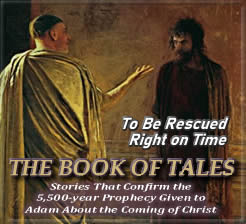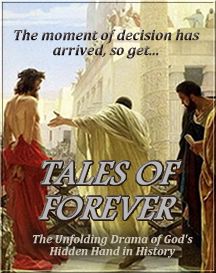About Time
Timing is Everything
One of the most overlooked aspects of The Bible is how certain promises of God are not just fired off like so much buckshot—promises here and promises there—and maybe they are fulfilled, and maybe they are not. Instead, some promises can be evaluated in time-specific terms, in order to determine whether or not they were fulfilled.
For example, the prophet Daniel was given a prophecy of the Coming of Christ that was a very specific promise involving time, as in the well-known Seventy Weeks of Daniel, where the Messiah would come after sixty-nine weeks of “years,” and then He would be “cut off.” As such, we can determine that from the time that the Persian king, Cyrus, ordered the rebuilding of the Temple of Jerusalem, to the time of Christ being crucified, was four hundred and eighty-three years.1
To those who look to the facts of history, then, the Advent of Christ was never something that God intended to catch humanity by surprise but, rather, was to be a clearly defined historical event that could be anticipated with a great deal of certainty.
Not Yet His Time
Then, there are other biblical events that are less well known to contain a time-specific component, but upon closer examination, the importance of the element of time is unmistakable. In this case, we are talking about the Feast Days of Israel, or, more specifically, the feasts of Passover, Unleavened Bread, and First Fruits. At first glance, these feast days simply commemorate pivotal events in the emancipation of the Israelite nation from the bondage of Egypt. Concerning these festivals, The Bible tells us: “Speak to the children of Israel, and say to them, ‘The Feasts of the Lord, which you shall proclaim as holy convocations—these are My appointed times.’”2
As for how these feast days function as “appointed times” of the Lord, most biblical scholars agree that not until the death and resurrection of Jesus were we finally able to grasp the true meaning and purpose of these feasts, as conveyed by the following facts of history.
Story Continues Below
Says Richard Price—the founder and CEO of Academia.edu—on his podcast In Depth With Academia:
The Book of Days: In Search of the 5,500-year Prophecy Given to Adam About the Coming of Christ is:
To hear Price’s book review of The Book of Days, CLICK HERE.
To hear Kent and Zen Garcia continue their discussion concerning the implications of the 5,500-year chronology from Adam to Christ as it pertains to the faithfulness of God, CLICK BELOW.
Story Continues From Above
Once, when Jesus was urged by His brothers to go to Jerusalem to confront the Pharisees, in a showdown He knew would cost Him His life, He refused to go, telling them, “Although your time is always at hand, My time hasn’t come yet.”3 We see the same thing in the events of the wedding of Cana, when Mary told Jesus that they had run out of wine, which set the stage for His first miracle in turning water into wine. Again, Jesus’ cryptic response alluded to the unique nature of divine timing: “Woman, why do you involve Me? My hour hasn’t yet come.”4 Naturally, statements like this in The Bible are typically glossed over because their true meaning is not made obvious when reading them apart from their prophetic context. However, when we closely examine the Feast Days of the Lord, an often-overlooked aspect of these festivals begins to make itself known. Just like Daniel’s prophecy of “weeks,” these “days” of the Lord contain a time-specific element that is critical to understanding why God instituted them in the first place.
The first thing to take note of is that the Passover always takes place on the 14th day of the first month on the Hebrew calendar, followed the next day by the Feast of Unleavened Bread. To students of prophecy, the feasts of Passover and Unleavened Bread were not only events that God’s people could look back to in commemoration of their emancipation from slavery in Egypt by the hand of Moses, but they also foreshadowed future events that spoke of humanity’s emancipation from sin through the work of Jesus Christ. As such, the Passover lamb anticipated Jesus as the ultimate sacrifice for the sins of all mankind; the unleavened bread spoke of Jesus as the sinless One given for the sustenance of all humanity.








